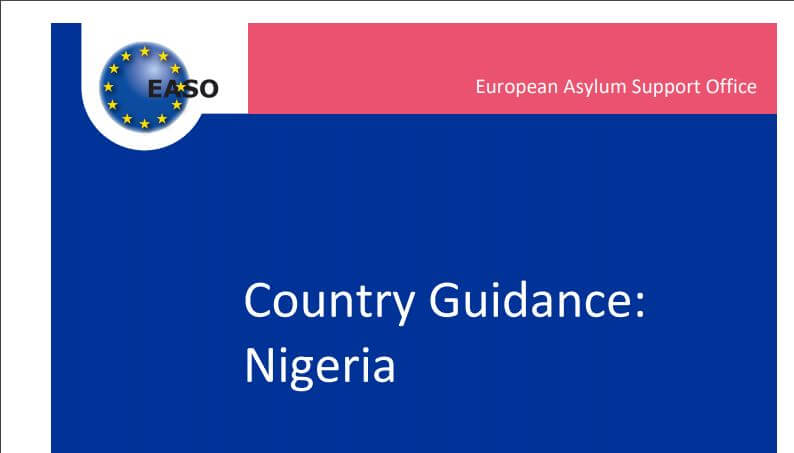The European Asylum Support Office (EASO) has published its guidance note and common analysis on Nigeria.
The Country Guidance reflects the common general assessment of the situation in Nigeria by senior policy officials from EU Member States with regards to the different elements of qualification for international protection under the Qualification Directive, along with guidance on relevant individual circumstances which should be taken into account. The Guidance, while not being binding, “aims to assist in the examination of applications for international protection by applicants from Nigeria, and to foster convergence in decision practices across Member States.”
With regards to the qualification for refugee status of persons with particular profiles, for example, the guidance note differentiates between three types of profiles. First, profiles which, in general, lead to a well-founded fear of persecution, including individuals targeted by Boko Haram and LGBT persons. Second, profiles that may lead to a well-founded fear of persecution in relation to certain risk-enhancing circumstances, e.g. human rights activists, Christian and Muslim minorities as well as women and girls. Third, profiles which solely belonging to does, in general, not lead to a well-founded fear of persecution, such as individuals threatened in relation to ritual killings or with severe medical issues.
The assessment is based on EASO’s six Country of Origin Information (COI) reports on Nigeria, EASO training material and practical guides, taking into account the jurisprudence of the Court of Justice of the European Union (CJEU).
It is the second Country Guidance published by EASO following the pilot on Afghanistan, which was released last June. The joint assessment and interpretation of the situation in main countries of origin forms part of the EU’s exercise to harmonize decisions on international protection from applicants of these countries, which started in 2016.
For further information:
- ECRE, Cameroon Forces Nigerian Refugees back to Violence, 25 January 2019
- ECRE, EASO strengthens efforts to harmonize country of origin reports, 15 December 2017
- ECRE Policy Note, Return: No Safety in Numbers, December 2017
Photo: EASO 2019
This article appeared in the ECRE Weekly Bulletin . You can subscribe to the Weekly Bulletin here.

